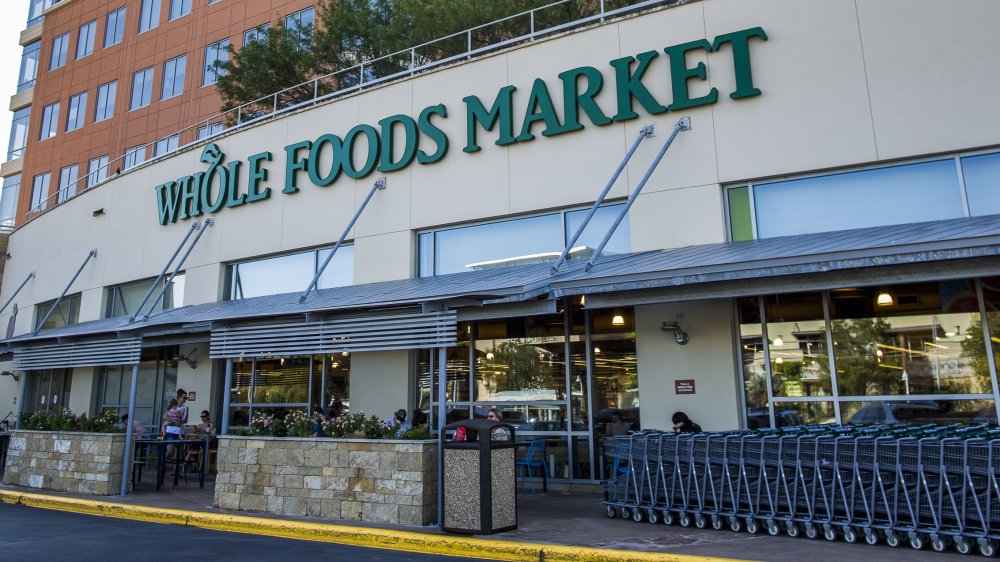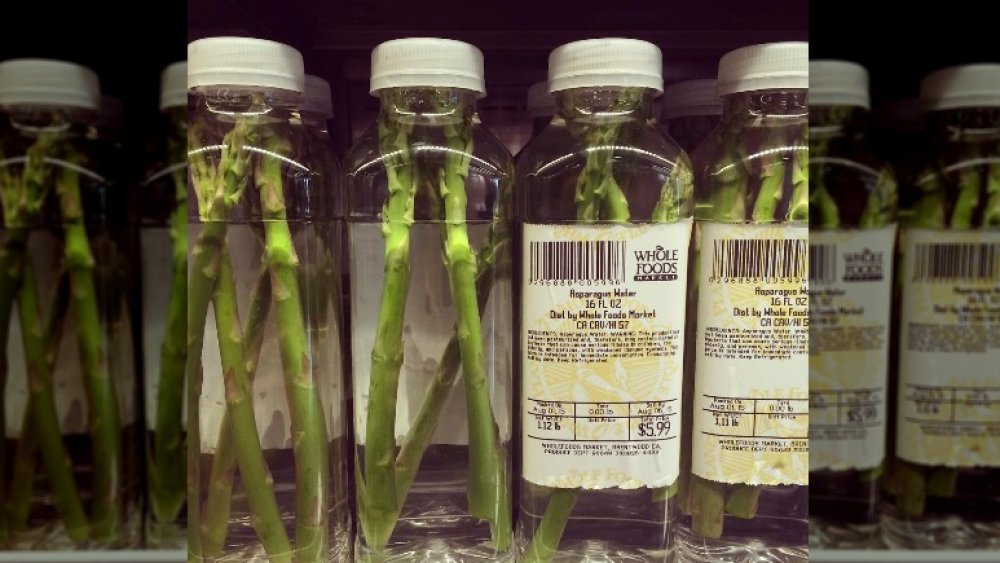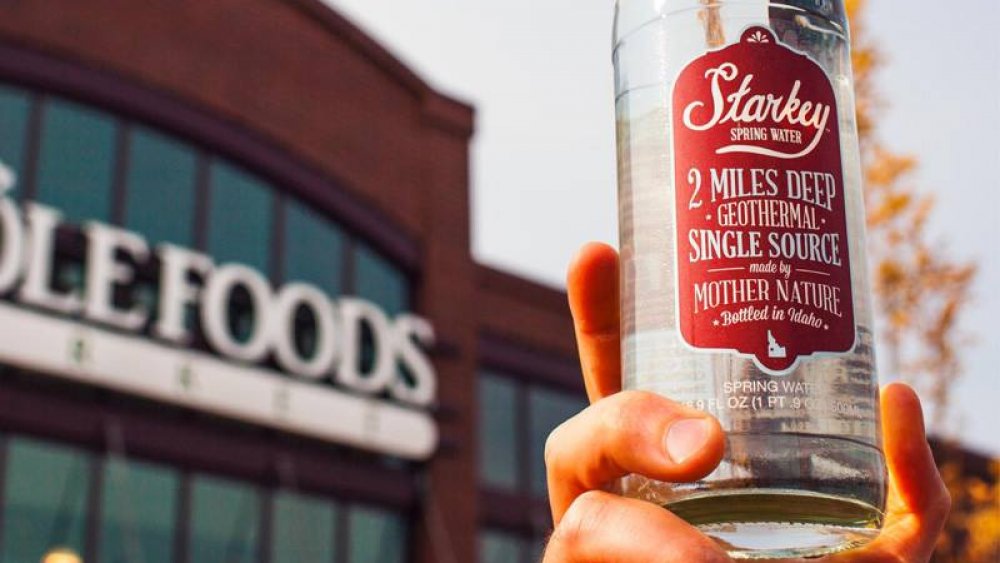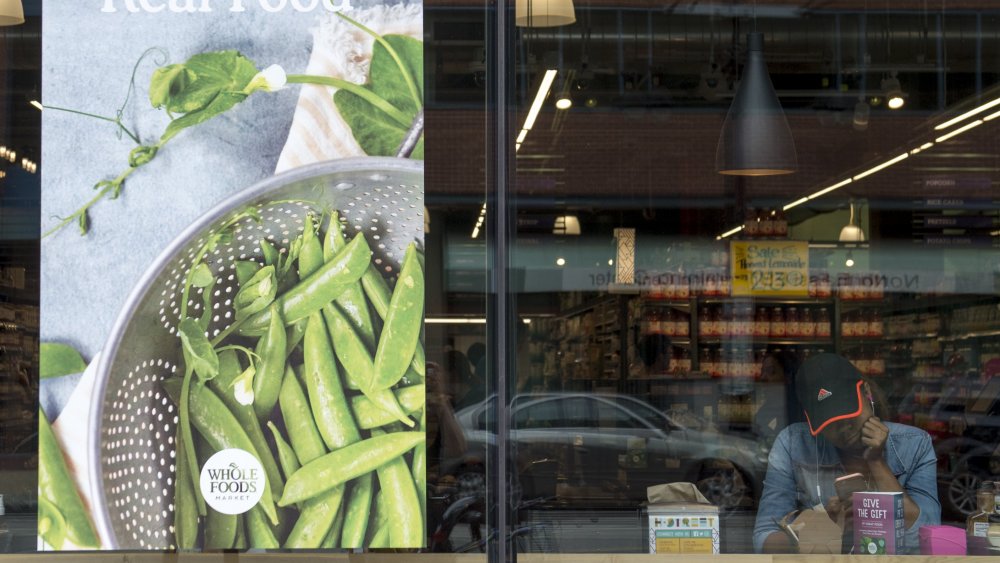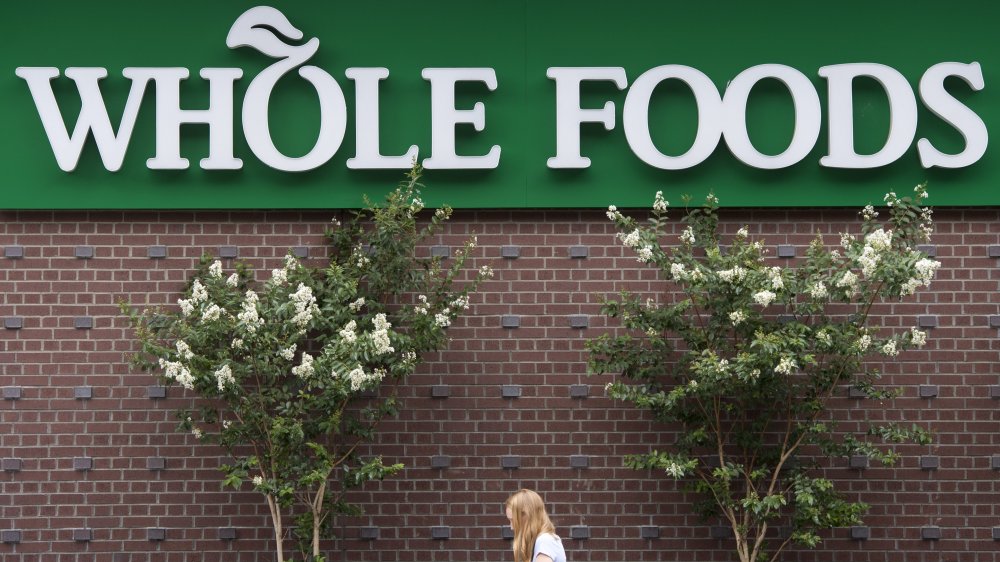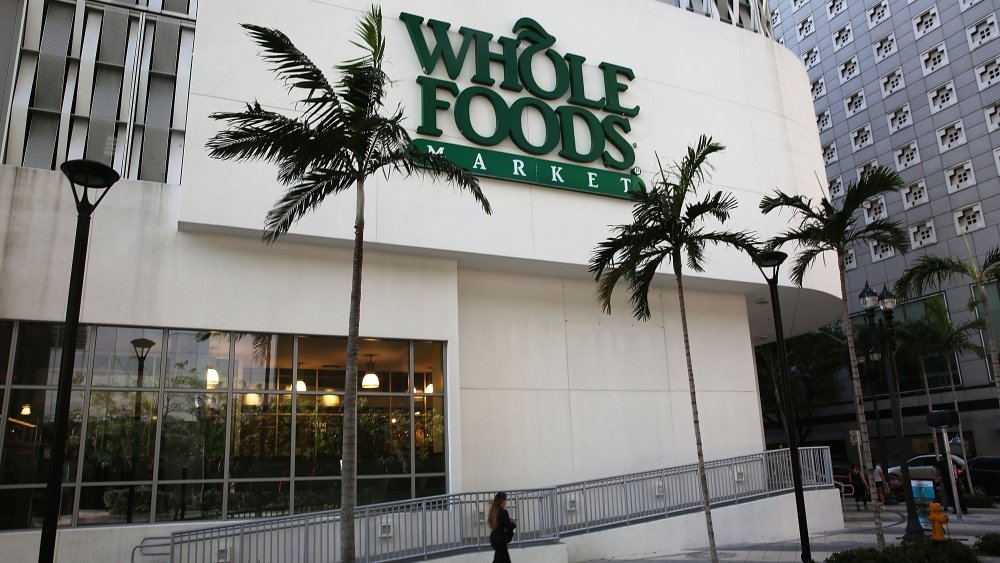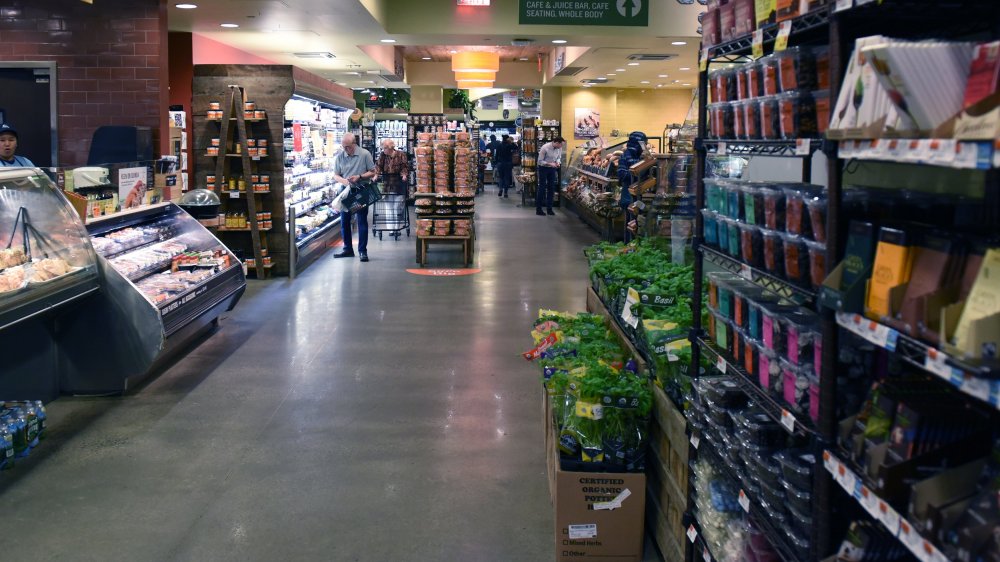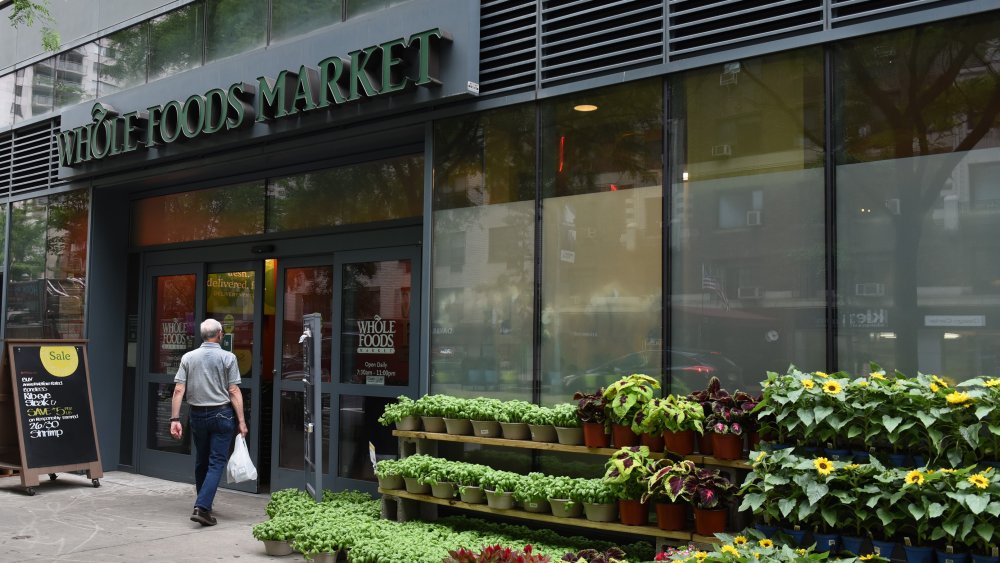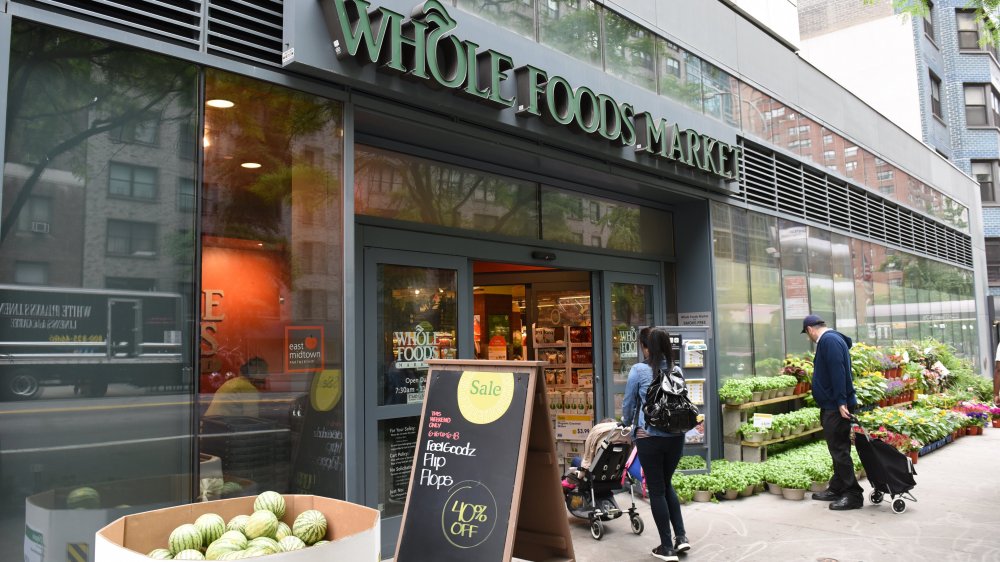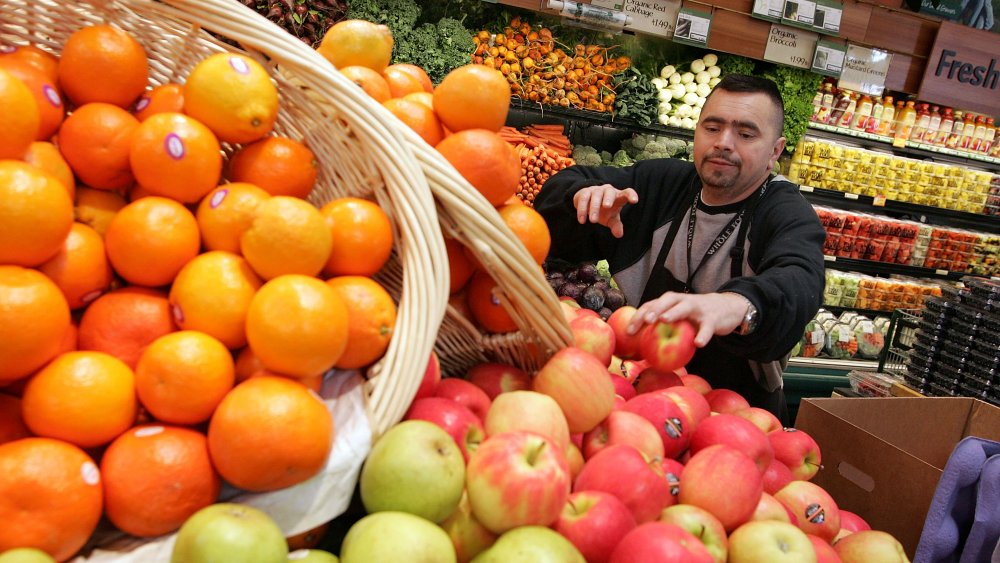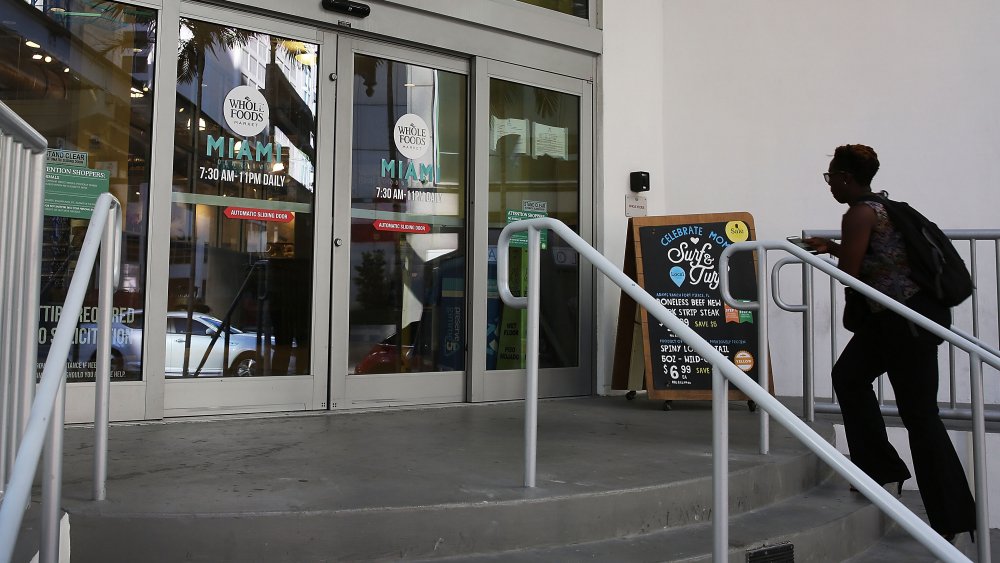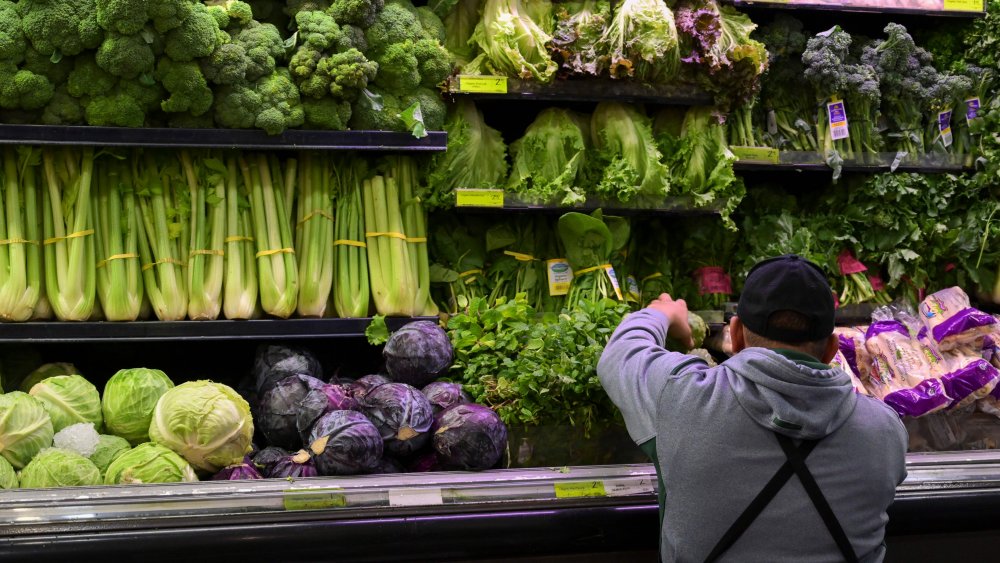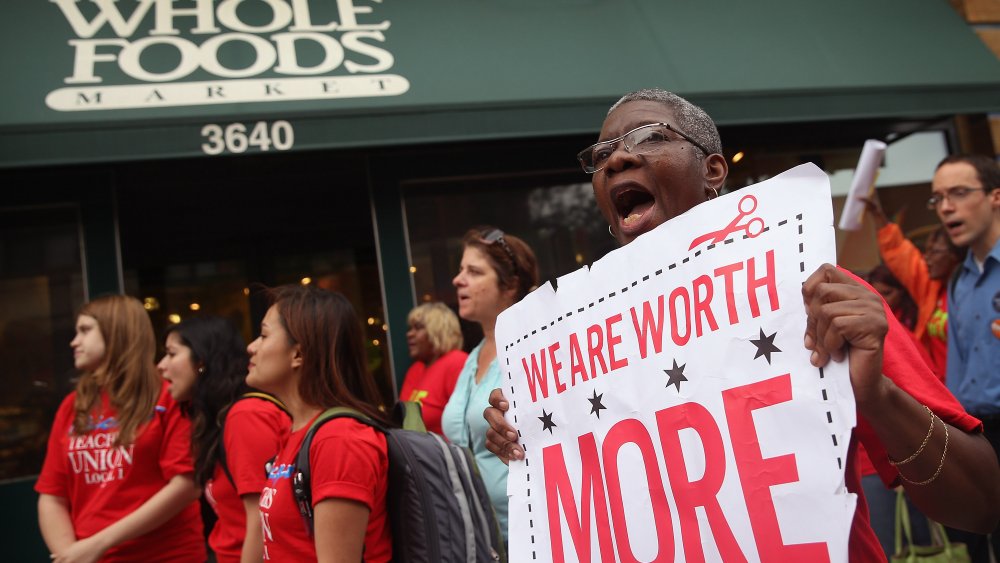Scandals Whole Foods Can Never Live Down
Whole Foods markets themselves as America's Healthiest Grocery Store, and they're definitely a great place to find all sorts of organic and responsibly-sourced foods. They've come a long way since their earliest days, when they opened with a staff of just 19 people. They've opened store after store, expanded across the country and beyond, and acquired other companies that shared their vision.
But they've also acquired something else: a whole lot of scandals. People have long called the high-priced specialty grocery store "Whole Paycheck," and that's just the start of things. Sure, it's expensive, but there have been numerous times they've been busted not giving people exactly what they're paying for, and that's still just the start.
Some of the most shocking Whole Foods news stories aren't just the ones where customers heard they were definitely being outrageously overcharged, but they're also the ones where the store was caught selling things that weren't entirely as healthy as claimed. The legacy of Whole Foods has been tarnished by things like health violations, dangerous substances, and violations of privacy... oh, my.
That time Whole Foods tried to sell asparagus water
It's no secret that some food trends are pretty weird. (Raw water, anyone? Would you like some charcoal with that?)
But in 2015, Los Angeles-based magazine editor Marielle Wakim snapped a picture of something on Whole Foods' shelves that absolutely took the cake, pie, and ice cream. It was a bottle of "asparagus water," which was essentially three stalks of asparagus in some water, for the not-so-low price of $5.99. (For the sake of comparison, you could pick up an entire bundle of asparagus for $5, and the water was tap water — which is, of course, free.)
CBC reported that when employees at the Brentwood store were contacted, they said that yes, they had assembled the containers on purpose with the hopes that people would realize what a great idea it was to drink asparagus water for the nutrients transferred from those few asparagus stalks. The online mockery was swift and stern, it was dubbed "Asparagus Water(gate)," and after Whole Foods' insistence (via CBS News) that it was supposed to be water with the essence of asparagus that had been made incorrectly, it was removed from shelves.
When Whole Foods' policy of massive overcharging was exposed
It's sort of an ongoing joke that Whole Foods is almost ridiculously expensive, and in 2015, the New York City Department of Consumer Affairs stepped forward (via CNN) to say that they had found routine practices of overcharging customers for prepackaged foods. In fact, department commissioner Julie Menin said inspectors called it "...the worst case of mislabeling they have seen in their careers."
Essentially, what they claimed was happening was that prepackaged foods that should have been priced with a per-pound weight were vastly overpriced. Some examples? Customers were being overcharged an average of $2.50 for vegetable platters, an average of $1.15 for packages of berries, and overcharges on packages of coconut shrimp were as high as $14.84.
And it wasn't the first time Whole Foods had found themselves accused of overcharging. The year before, they had agreed to pay three cities in California $800,000 in fines after the state uncovered a slew of pricing violations there.
But don't expect to see any money back if you're just an ordinary customer. One Whole Foods customer sued because of the results of the investigation, and The Wall Street Journal reported the lawsuit was thrown out because he didn't have evidence of what he bought, what it actually weighed, and what he was overcharged.
When Whole Foods sold arsenic with their bottled water
Unless there's a water crisis, even the best bottled water isn't a great purchase for all kinds of reasons, from the insane amount of water required to make a single bottle to the tendency of bottles to pile up and ruin the environment. But in 2019, the bottled water brand owned by Whole Foods was found to contain more than the legal limit of arsenic.
The FDA allows bottled water to contain 10 parts per billion of arsenic, and that's not much. When Whole Foods' Starkey water was tested, the random samples had anywhere from 9.5 parts per billion to 12 parts per billion, says Business Insider. While the Center for Environmental Health recommended customers avoid purchasing Whole Foods' bottled water until the matter was sorted, the only response the grocer had was to insist that the product was well within FDA guidelines.
For the sake of fairness, it has to be added that the World Health Organization, the International Agency for Research on Cancer, and the US Environmental Protection Agency all consider arsenic a carcinogen, and say children are particularly vulnerable to the effects.
When Whole Foods' health violations got the FDA's attention
In 2017, Whole Foods closed all three of their regional kitchens. The facilities in Everett, Massachusetts, Atlanta, Georgia, and Landover, Maryland were the source of the chain's ready-to eat food, and according to official statements (via Food Safety News), the closures were simply "part of our ongoing plan to streamline operations." Outside suppliers would be used to source pre-packaged and ready-to-eat food items, but news outlets were reporting that wasn't the entire story.
In 2016, CNBC reported that Whole Foods had received a warning letter from the FDA that cited multiple food violations in the prep facilities, including foods being prepped in areas where condensation was leaking directly onto the food, failures to sanitize and clean prep areas properly, employees that weren't following proper hand-washing procedures, and cleaning fluids that were coming in contact with food. One location was warned about the presence of Listeria on food contact surfaces. Whole Foods answered the letter detailing more than 20 violations in a way the FDA found inadequate, but continued to operate the kitchens until their closure the following year.
When Whole Foods advertised on Breitbart
Starting in 2016, companies that had been advertising on the alt-right news site Breitbart had begun a mass exodus, pulling their ads and severing ties. By August of 2017, more than 2,600 advertisers had pulled out, (a number that rose to 4,000 by 2018, says Vox) but Whole Foods and Amazon were not among them. According to Grub Street, a lot of people had a huge problem with that.
A Sum of Us started a petition to get Whole Foods and their parent company, Amazon, to "Stop investing in hate. Stop advertising with Breitbart." The petition got more than 620,000 signatures, but Amazon and Whole Foods remained, in spite of calls for boycotts and protests of both. Whole Foods has been the site of their fair share of protests, as well — since it's tough to physically demonstrate at the location of a massive entity who is mostly online, protests have taken to Whole Foods locations. It hasn't really made a difference.
When Whole Foods was found using prison labor
In 2015, Whole Foods announced that they had heard the public outcry, and that they were going to stop selling products made with the help of prison labor.
What happened? According to NPR, the protest came from Michael Allen, the founder of an organization called End Mass Incarceration Houston. In spite of the fact that supporters of prison labor claim inmates are being taught valuable skills that can help them build a life after their release, Allen says they're only being exploited as a source of cheap labor.
Allen appealed to Whole Foods and asked them to stop selling goat cheese from Haystack Mountain Goat Dairy and tilapia from Quixotic Farming, and Whole Foods agreed. But NPR decided to dig a little deeper, and go right to the source: the inmates who were milking those goats.
They found those who were working in the program (and who had in the past) had nothing but favorable things to say about it. Even if they weren't making a ton of money, they all agreed it was one of the better jobs they could get. They were outside, they were working with empathetic, caring animals, and some even continued raising goats after getting out. Haystack Mountain is still in business, just not at Whole Foods.
Whole Foods' cancer-causing packaging scandal
Safer Chemicals Healthy Families is an advocacy group that formed with the goal of protecting consumers from toxic chemicals that find their way into all sorts of products. In Whole Foods' case, those chemicals were found in their packaging.
In 2018, the group released a report on their findings that food-contact packaging from Whole Foods — including take-out containers and papers — contained per- and polyfluoroalkyl substances. Those are chemicals which can be used to treat containers to make them more leak-proof, but that have been linked to causing cancer, instances of liver and immune system damage, and developmental toxicity. That's only part of the problem, they note, as once packaging treated with these chemicals ends up in landfills, they leach contaminants into the environment and become a major source of pollution.
The chemical was present in 5 of the 17 containers tested, the highest rate of the grocery stores tested. (The list that included Trader Joe's, Albertsons, Kroger, and Ahold Delhaize). According to CNBC, Whole Foods immediately took action to rectify the problem, and got rid of all packaging containing the chemicals.
When rabbit meat showed up on Whole Foods shelves
In 2014, Whole Foods piloted a program that brought a new type of meat to their shelves: rabbit. There were a ton of people who weren't happy about it, and according to their official statement (via The Dodo), they understood why so many people were outraged, but also noted that they had some requests for rabbit, so they were going to provide rabbit meat.
Groups like the House Rabbit Society led the charge against supplying rabbit meat with a few facts. They say rabbits aren't covered under USDA laws that govern how animals need to be humanely slaughtered for food, and that means their deaths are often messy and painful. They also point out that rabbits aren't just for food anymore, they're a companion animal — third behind cats and dogs in the U.S., in fact. As of 2012, there were around 2.5 million homes with pet rabbits, so it's understandable that seeing them in the meat counter made a lot of people very, very upset. Tens of thousands of people petitioned Whole Foods to end their sale of rabbit meat, and they did — in September 2015.
Whole Foods was accused of violating privacy by collecting fingerprints
In 2019, some bizarre information came to light when a former employee stepped forward to say that Whole Foods was in violation of Illinois privacy laws. Why? Because, the Cook County Record reported, they required their employees to clock in and out using a biometric time clock that identified them by their fingerprints.
There were other problems, too. When Whole Foods collected employee fingerprints, the class action lawsuit said, they didn't give them information like how long the private time-keeping vendor would be keeping those fingerprints, they didn't ask for consent to give those fingerprints to another organization, and they were putting all of their employees at risk for identity theft.
The suit was only filed after another Illinois Supreme Court case in which it was ruled companies who collect biometric data without consent can be sued, Newsweek reported. And that's important — you can't just change your fingerprints if your information is compromised.
Strangely, Amazon and Whole Foods seem to be doubling down on collecting biometric data, not backing off. BoingBoing reported that the retail giant was in the process of testing a system code-named Orville, which would allow customers to scan their handprint and use it to complete their payment in less than 300 milliseconds, as opposed to the 3 or 4 seconds it usually takes now. Weirdly, the scanners are so high-tech they don't even require a customer to actually touch them in order for hands to be scanned.
Whole Foods has an iffy stance on healthcare
In 2009, Whole Foods' CEO John Mackey wrote a piece for The Wall Street Journal where he presented their alternative to ObamaCare. It involved things like paying 100 percent of their employees' health care premiums and giving them additional funds in a Personal Wellness Account, and that actually sounded pretty great. Until, that is, he kept going.
Mackey went on to say that most people's health problems were their own fault, and that if Americans would only eat right and make other healthy choices then everyone should be living problem-free into their 100s.
That same month, in an interview with The Wall Street Journal (via The Guardian), he explained that Whole Foods would be kick-starting an initiative that would teach people how to eat healthy. But then he went on to say, "We sell a bunch of junk," that he would get rid of all the unhealthy foods on their shelves. He also said he was considering "bribing" his employees with bonuses if they would just lose some weight.
Mackey's holier-than-thou attitude made a lot of people angry, says The Guardian, and people started calling for boycotts, saying Whole Foods was completely out of touch with a customer base that was now struggling to put any food on the table, much less the healthy — and expensive — options so popular at Whole Foods.
Whole Foods has continued problems with racism
In 2018, the Long Beach, California Whole Foods location partnered with a pan-Asian restaurant, and a lot of people took issue with the restaurant's name: Yellow Fever.
According to The Washington Post, restaurant owner Kelly Kim denied that it was anything racist or sexist, and only referred to a love of all things Asian. Given the racist connotation of the term "yellow," well, it's no wonder some people viewed it as racist. There are other problems, too — not only is yellow fever a deadly disease that still kills thousands of people a year, it's also a slang term for the fetishizing of Asian women. Social media was not buying the claim that she wanted to "re-appropriate" the term.
That's not all, either. In 2018, Whole Foods was blamed for making one customer feel "like a criminal" after he was kicked out by both a police officer and a Whole Foods manager for oversampling. It's worth noting, says CBS, that he was there waiting for his wife to join him for lunch, that he was a non-English-speaking immigrant, and that Whole Foods has a policy of "Sample Nearly Everything."
Then, in 2019, one longtime employee brought a lawsuit against the company. He had been working there for 22 years, says Philadelphia Magazine, and claimed the company discriminated against black employees when it came time for promotions. That's in addition to lawsuits claiming they fired black employees more often and for no reason, and another that claimed they regularly subjected customers to racial profiling.
When Whole Foods' new inventory system ended in tears
Amazon is great when you need something fast and cheap, but do some digging and you'll find a ton of shady stuff there — especially when it comes to how they treat their employees. When they acquired Whole Foods in 2017, it's easy to see how there might have been a bit of unease among stores, and by February 2018, Business Insider was reporting that seeing stressed, tearful employees at Whole Foods was becoming the new normal.
At the heart of the problem was a new inventory management system designed to help cut down on food waste. Admirable enough, maybe, but employees say not only are they spending more time drowning in paperwork than helping customers, but they also say they're regularly escorted through stores by management, graded on scorecards, and held to a 108-point checklist that manages expectations so strict that a department will lose points if there's an item even one inch out of the place designated for it.
While Whole Foods has said they're super excited about the new system, employees — that spoke on conditions of anonymity — use other phrases like "fear of chastisement, punishment, and retribution," "a tense working environment," and some even say, "I wake up in the middle of the night from nightmares about maps and inventory."
When Whole Foods cut part-time employee benefits
By 2018, Vox reported that worried Whole Foods employees were trying to unionize. With Amazon now in charge, consolidations and layoffs had led to widespread worries that there was more to come, including fears that benefits and pay would be slashed, and they would see their jobs turn into just another cog in the Amazon machine — a machine that has already seen global protests.
And in September 2019, Business Insider was reporting that those cuts where happening. Hundreds of part-time employees were losing their medical benefits, and the chance to buy their medical insurance through the company. While Whole Foods was quick to point out it impacted only about 2 percent of their employees, social media was just as quick to point out that some of those employees relied on Whole Foods for medical coverage for themselves and for their families. It was also quick point out that at the same time around 1,900 were losing healthcare benefits, Jeff Bezos was still worth somewhere around $114 billion. Give or take. Just what kind of long-term impacts Amazon's takeover of Whole Foods will have remains to be seen, but many employees are already very, very unhappy.
